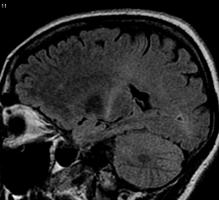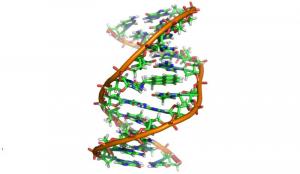Microstroke: what they are, symptoms, causes and how to prevent them
Strokes, embolisms or cerebral infarctions are widely known by the population, thanks to the awareness work on these problems. However, there is also a modality of these brain accidents unknown to many and that, despite its immediate lesser severity, in the long run they bring with them serious symptoms.
Microstrokes are basically milder strokes but that, if they are suffered several times in the same area of the brain, they will end up causing severe changes in personality and behavior. Let's delve into what they are and what symptoms they cause.
- Related article: "Types of stroke (definition, symptoms, causes and severity)"
What are microstrokes?
Microstrokes, also called mini strokes, mild strokes or transient ischemic attacks (TIAs), are cerebrovascular accidents that affect very small areas of the brain, sometimes in areas of microscopic size. They consist of a brief interruption of blood flow to a small part of the brain, retina or spinal cord. They can cause temporary symptoms similar to those of a stroke, but with much less immediate severity, often going unnoticed.
The main problem with these strokes is that they hardly have symptoms, being rather silent. This implies that a person can suffer from them without realizing it, making it difficult for them to go to a specialist immediately to treat them. However, after a while, these small strokes can cause changes in the personality and behavior of the affected person.
The area that is usually most affected by microstrokes is the subcortical part. Lesions in this region cause apathy and other emotional symptoms related to motivation and depression.
Therefore, if we have a family member who suddenly begins to show a certain lack of interest in his surroundings, low motivation or that he stops reacting to many stimuli around him could mean that he has suffered an ischemic attack transient. It is true that that change in your personality and behavior It can be due to many factors, but the possibility of a neurological problem such as microstrokes should not be ruled out.

However slight it may be, any lesion in the subcortical area will cause emotional disturbances and changes in the personality of the affected person over time. They are subtle changes but, with the passage of time, they become more evident and worrying.
Microstrokes, if they are repeated in the affected area, will make it bigger and bigger and may end up causing greater changes and cognitive, behavioral and emotional problems. About one in three people who have a mini-stroke are at risk of having a new stroke within 48 hours. Microstrokes can be a warning sign that something worse is coming.
- You may be interested: "Circulatory system: what it is, parts and characteristics"
Symptoms associated with mini stroke
A large part of microstrokes occur without leaving immediate sequelae. At most, the affected person will experience some general discomfort that can last a few days, in most cases little more than 24 hours.
However, in some cases it can progress to a more severe affectation, especially in the psychosocial field. Research with patients who have suffered a microstroke suggests that the most common symptoms involve a decreased social life. These patients begin to be more irritable, lose patience, sense of humor and may even engage in aggressive behavior.
One of the most common symptoms in patients who have suffered microstrokes are personality changes, very slow and progressive. At first, some changes in the individual can be perceived, which are so subtle that their family environment probably does not give them too much importance. But, after a few weeks or months, the personality change has evolved enough to be able to see that there is a clear alteration in his way of being and acting.
Although they do not usually cause serious physical or psychological symptoms right away, they doMicrostrokes are associated with experiencing dizziness, nausea, headaches, double vision, numbness, muscle weakness, slurred speech, or brain fog. In more advanced stages, tremors and swallowing problems may occur.
- Related article: "The 12 most important brain diseases"
Cumulative effects of microstrokes
One of the problems with microstrokes is that several can be suffered over time, which is very problematic because their effects are cumulative, especially if they occur in the same area. These lesions cause blood flow to no longer reach the entire brain in the same way., with which the individual will show even more changes in personality and behavior. The more microstrokes, the more injuries the brain suffers that lead to vascular dementia.
In addition, being a dementia, the following problems will be evident:
- Limitations in planning and judgment
- Emotional alterations: depression, affliction, apathy, irritability...
- Cognitive alterations: confusion, memory failures, disorientation...
Microstrokes rarely appear isolated and punctual. If you have already suffered one, there is a good chance that you will suffer another in the future and, even, that the next one will be a book embolism or cerebral stroke.
Either way, as more of these neurological problems occur, the more damaged the brain tissue will be and, therefore, the behavioral and personality changes of the subject will be more serious.
- You may be interested: "Parts of the Human Brain (and Functions)"
How to prevent microstrokes
As with practically all diseases, it is not possible to prevent a microstroke 100%. However, it must be taken into account that there are several risk variables that we can control to reduce the chance of having one of these transient strokes. These variables are the following:
- No Smoking.
- Not to drink alcohol.
- Eat 5 pieces of fruits and vegetables a day.
- Control our cholesterol levels.
- Control our blood sugar levels.
- Avoid sweets.
- Take salt in moderation.
- Eat fatty foods in moderation.
- Drink enough water daily (1.5-2 L).
- Do aerobic exercise every day, such as walking or jogging.
- Monitor weight, avoiding both underweight and overweight and obesity.
The only factors we cannot control are age and genetics. In all cases it is essential to have regular medical check-ups and follow a healthy lifestyle to prevent these strokes. It is also important to be aware of any unusual personality changes or behavior that we see in our relatives. elderly, since an early diagnosis of brain injury is crucial to maintain their faculties through adequate treatment.


